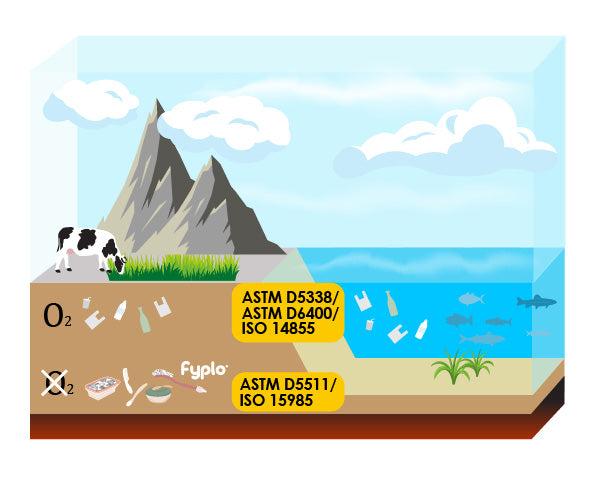
about
ASTM D5511 / ISO 15985
This determines anaerobic biodegradation of plastic materials under high-solids anaerobic-digestion conditions. This test method may resemble some conditions in biologically active landfills where the gas generated is recovered and biogas production is actively promoted by inoculation, moisture control, and temperature control.
The Process
Anaerobic Biodegradation
The majority of biodegradable plastics have been designed to degrade in the aerobic environment of an industrial composting plant. However, in developing countries, they can be disposed in landfills due to deficient management practices, misinformation, and lack of infrastructure. Also, they could be incorporated in anaerobic digestion systems in places where this technology is used to treat organic waste. While anaerobic digestion systems are specifically designed to promote the biodegradation process through the control of operational variables, the main objective in landfills is the safe confinement of waste, even if in some of them the produced biogas is collected and used.
The biodegradation or decomposition of organic matter by bacteria in an oxygen-free environment. As a result of this biodegradations, the bacteria generate biogas. The biogas generated through anaerobic digestion can be used primarily to 1) fuel electrical generators, or 2) it can be further processed into renewable natural gas. The digestate may also be used as a nutrient-rich soil amendment most commonly in agricultural and horticulture operations.






